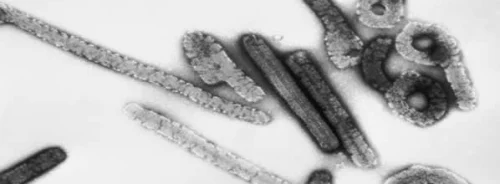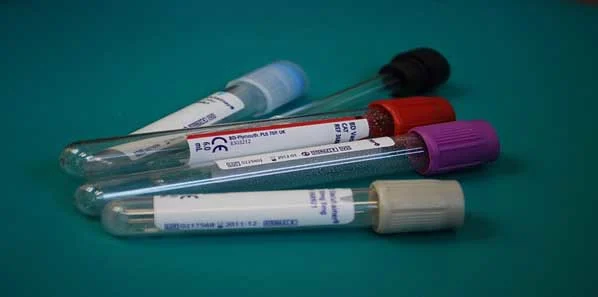According to a new study, a blood test could determine who is at high risk for developing schizophrenia and other forms of psychosis. The research, conducted by Dr. Diana O. Perkins of the University of North Carolina and her research team, has been published in Schizophrenia Bulletin.
Schizophrenia affects around 24 million people worldwide and is characterized by hallucinations, delusions, dysfunctional thoughts and agitated body movements. To date, there is no specific test for schizophrenia and it is generally diagnosed through assessments by mental health experts.
It is believed that the earlier a patient receives treatment for the disease, the better the outcome will be. Starting treatment during the prodromal phase could reduce the risk of severe symptoms or disability. However, the fact that the disease may not be identified at an early stage is a major barrier to early treatment.
The new blood test could help reduce this barrier. According to the researchers, patients with schizophrenia have abnormal levels of markers of inflammation, oxidative stress, metabolism and hormones. The team thus analysed blood samples of 32 patients with symptoms that suggested a high risk of psychosis alongside blood samples of 35 control subjects. The team wanted to determine whether the presence of these markers could predict which patients were at a high risk of developing psychosis. The patients were assessed every six months for two years.
The findings show that of the 32 patients with psychotic symptoms, 15 specific markers were present in their blood. The researchers were able to detect that 14 of the patients had schizophrenia while 13 had an unidentified form of psychosis. Two patients suffered from severe depression while the rest either had bipolar disorder, delusional disorder and schizoaffective disorder.
This blood test shows promise and should be further used in other patients at high risk of psychosis in order to assess its accuracy and reproducibility. The research team concludes that there is still more work to be done and there is a possibility that this diagnostic tool could be combined with other clinical, imaging or electrophysiological measures to assess psychosis in high-risk subjects.
According to Dr. Perkins, "While further research is required before this blood test could be clinically available, these results provide evidence regarding the fundamental nature of schizophrenia, and point toward novel pathways that could be targets for preventative interventions."
Source: Medical News Today
Image Credit: Pixabay.com
Schizophrenia affects around 24 million people worldwide and is characterized by hallucinations, delusions, dysfunctional thoughts and agitated body movements. To date, there is no specific test for schizophrenia and it is generally diagnosed through assessments by mental health experts.
It is believed that the earlier a patient receives treatment for the disease, the better the outcome will be. Starting treatment during the prodromal phase could reduce the risk of severe symptoms or disability. However, the fact that the disease may not be identified at an early stage is a major barrier to early treatment.
The new blood test could help reduce this barrier. According to the researchers, patients with schizophrenia have abnormal levels of markers of inflammation, oxidative stress, metabolism and hormones. The team thus analysed blood samples of 32 patients with symptoms that suggested a high risk of psychosis alongside blood samples of 35 control subjects. The team wanted to determine whether the presence of these markers could predict which patients were at a high risk of developing psychosis. The patients were assessed every six months for two years.
The findings show that of the 32 patients with psychotic symptoms, 15 specific markers were present in their blood. The researchers were able to detect that 14 of the patients had schizophrenia while 13 had an unidentified form of psychosis. Two patients suffered from severe depression while the rest either had bipolar disorder, delusional disorder and schizoaffective disorder.
This blood test shows promise and should be further used in other patients at high risk of psychosis in order to assess its accuracy and reproducibility. The research team concludes that there is still more work to be done and there is a possibility that this diagnostic tool could be combined with other clinical, imaging or electrophysiological measures to assess psychosis in high-risk subjects.
According to Dr. Perkins, "While further research is required before this blood test could be clinically available, these results provide evidence regarding the fundamental nature of schizophrenia, and point toward novel pathways that could be targets for preventative interventions."
Source: Medical News Today
Image Credit: Pixabay.com
Latest Articles
blood test, diagnosis, schizophrenia, psychosis, mental health
According to a new study, a blood test could determine who is at high risk for developing schizophrenia and other forms of psychosis. The research, conduct...








